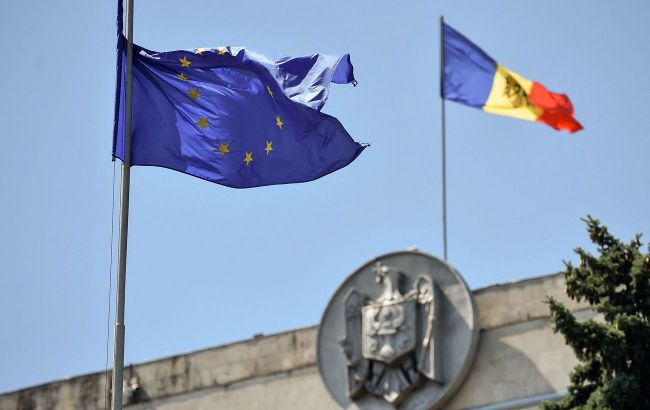ISW reports on antics of Kremlin agents and violations during election in Moldova
 In Moldova, there is a risk of protests from pro-Russian forces (Illustrative photo: Getty Images)
In Moldova, there is a risk of protests from pro-Russian forces (Illustrative photo: Getty Images)
Moldova's presidential elections and the referendum on the country's accession to the European Union have surpassed the voter turnout threshold and are deemed valid. Pro-Russian forces may soon organize protests in response, according to a report from the Institute for the Study of War (ISW).
The report noted that the incumbent president, Maia Sandu, has a strong chance of being re-elected for a second term. The referendum, if held, would amend the Constitution to designate EU membership as one of Moldova's strategic goals. Voter turnout exceeded the required minimum of 33%, meaning the results of both the presidential elections and the referendum will be considered valid.
"Although Moldova stands to advance its path towards European integration with the October 20 election and referendum, the Kremlin will continue its efforts to sabotage Moldova's EU accession and destabilize Moldovan democracy into the next decade," the ISW stated.
Violations during the election
The report also highlighted the Moldovan authorities' announcements regarding several attempts to violate electoral legislation, including efforts by pro-Russian elements to influence election results and destabilize the country through violent protests and similar actions.
As of 6:30 PM local time, the General Police Inspectorate of Moldova reported 113 violations of electoral law, including photographing and damaging ballots, as well as organizing voter transportation.
The Central Election Commission of Moldova stated that observers from unspecified pro-Russian Moldovan political parties requested access to polling stations in Russia and Romania. However, the authorities denied their request, as they had failed to officially register as observers by the established deadline.
On October 20, the Moldovan Ministry of Foreign Affairs stated that unidentified individuals had artificially created large queues at two polling stations in Russia as part of an attempt to illegally transport voters to the polls.
Moldovan news agency IPN reported that unidentified individuals were distributing invitations to a restaurant to Moldovan voters at the polling station in Moscow. They claimed this event was organized by the Moldovan embassy in Russia, although embassy representatives denied this.
The pro-Kremlin Cultural Educational Center of Moldova, linked to Moldovan opposition politician Ilan Shor and currently under US sanctions, offered voters in Moscow Moldovan citizen in Russia cards. These cards entailed free services such as internet access, and medical, legal, and banking assistance in Russia.
Additionally, Moldovan media reported a bomb threat at a polling station in Italy but did not specify who was responsible for the incident.
Threat of protests after the election
On October 17, Alexandru Musteata, the Director of Moldova's Intelligence and Security Service, reported that foreign instructors linked to the Wagner Group had trained a group of about 100 pro-Russian Moldovans in guerrilla camps located in Serbia and Bosnia and Herzegovina.
Musteata stated that these Moldovans learned to counter law enforcement, use weapons and non-lethal injury devices, handle homemade explosives, and operate drones equipped with explosive payloads.
Moldovan police also reported that over 300 Moldovans had been educated in protest tactics at a training site near Moscow and that the non-profit organization Eurasia, associated with Ilan Shor, funded these trainings.
"Kremlin authorities and pro-Kremlin Moldovan actors may plan to ignite protests after the election as part of efforts to destabilize Moldovan society and discredit the results," the ISW report stated.
Election and referendum in Moldova
On Sunday, October 20, the presidential election and a referendum on Moldova's accession to the European Union took place.
The Moldovan Ministry of Foreign Affairs opened only two polling stations in Russia, despite the Central Election Commission's proposal to open five. Both stations experienced long queues throughout the day.
Ahead of the voting, the Moldovan government noted that the Kremlin had spent around €100 million to disrupt the elections and the referendum.
For insights on the expectations surrounding the elections in Moldova and the risk of a pro-Russian comeback, read the article by RBC-Ukraine.

